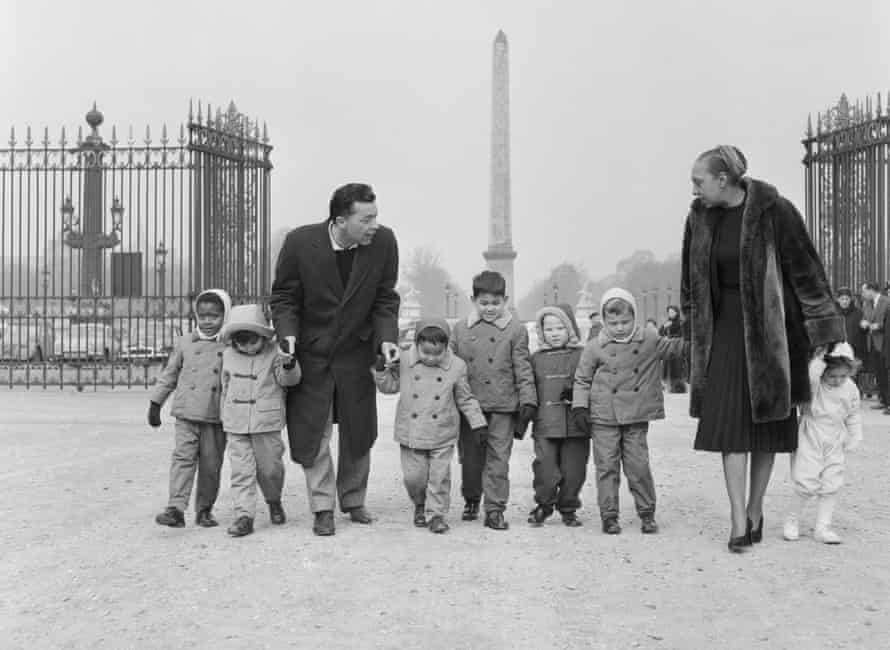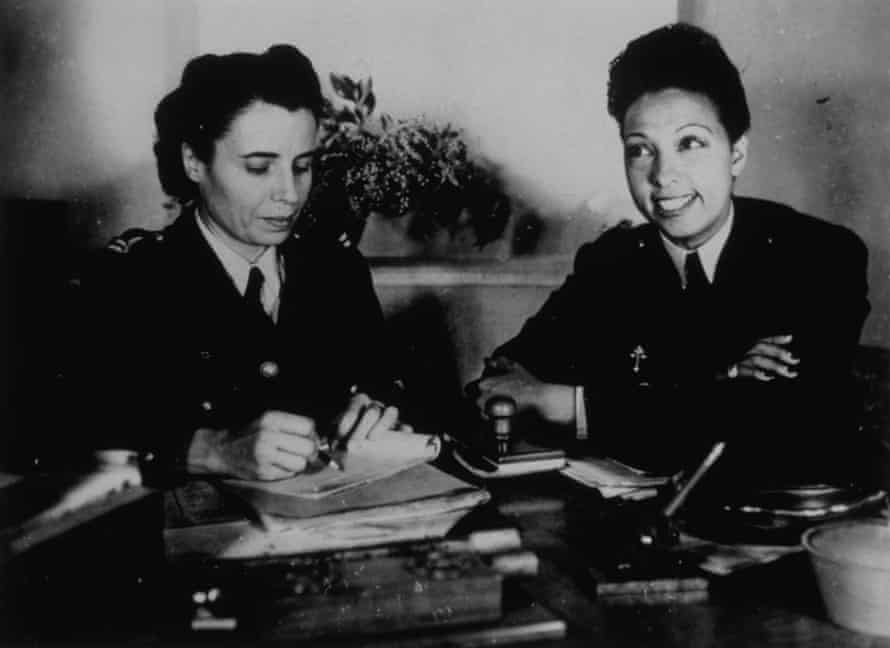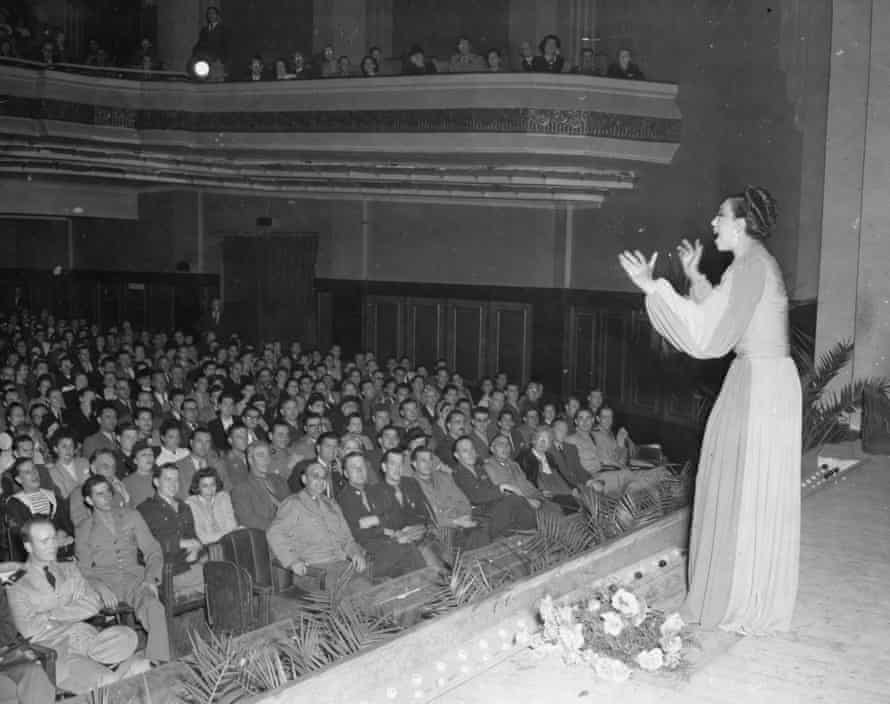“In Michigan, local GOP leaders have sought to reshape election canvassing boards by appointing members who expressed sympathy for former president Donald Trump’s false claims that the 2020 vote was rigged.
In two Pennsylvania communities, candidates who embraced election fraud allegations won races this month to become local voting judges and inspectors.
And in Colorado, 2020 doubters are urging their followers on conservative social media platforms to apply for jobs in election offices.
A year after local and state election officials came under immense pressure from Trump to subvert the results of the 2020 White House race, he and his supporters are pushing an ambitious plan to place Trump loyalists in key positions across the administration of U.S. elections.
The effort goes far beyond the former president’s public broadsides against well-known Republican state officials who certified President Biden’s victory, such as Georgia Secretary of State Brad Raffensperger and Arizona Gov. Doug Ducey. Citing the need to make elections more secure, Trump allies are also seeking to replace officials across the nation, including volunteer poll watchers, paid precinct judges, elected county clerks and state attorneys general, according to state and local officials, as well as rally speeches, social media posts and campaign appearances by those seeking the positions.
If they succeed, Trump and his allies could pull down some of the guardrails that prevented him from overturning Biden’s win by creating openings to challenge the results next time, election officials and watchdog groups say.
“The attacks right now are no longer about 2020,” said Colorado Secretary of State Jena Griswold (D). “They’re about 2022 and 2024. It’s about chipping away at confidence and chipping away at the reality of safe and secure elections. And the next time there’s a close election, it will be easier to achieve their goals. That’s what this is all about.”
A spokesman for Trump did not respond to a request for comment.
Supporters of the former president who are seeking offices that would give them oversight of elections say they just want to make the system secure.
Voters have a right “to scrutinize the election process,” Kristina Karamo, a candidate for Michigan secretary of state, told several hundred demonstrators gathered on the lawn of the state Capitol in Lansing last month in support of a “forensic” audit of the 2020 results.
Karamo — who shot to prominence after making unsubstantiated allegations that she witnessed fraudulent voting as a poll challenger in Detroit — said one of her top priorities as the state’s top election administrator would be to “make sure every citizen across the state of Michigan’s voice is heard. That way illegal ballots do not nullify legal votes.”
Few states have seen more fervor for replacing election officials than Michigan, where the push extends from candidates for statewide office down to the most local level of election administration — county boards of canvassers, whose members served as bulwarks against Trump’s efforts in 2020.
One leader of the effort to challenge the 2020 vote in the state, West Michigan lawyer Matthew DePerno, is seeking the GOP nomination for attorney general. DePerno, who waged a failed legal battle over an election-night vote-counting error in Antrim County, has built his campaign around a vow to expose fraud.
“The elites in this state, the elected officials they don’t want you — the voter, the common man, the taxpayer — they don’t want you to see the voting data,” DePerno told the cheering crowd at the Lansing rally, adding: “The Democrats and the establishment don’t understand the power of the grass roots movement in Michigan.”
Neither DePerno nor Karamo responded to requests for comment.
Trump has endorsed both candidates, part of a wave of Republican contenders across the country who have embraced the former president’s false assertions about the 2020 election — including 10 running for secretary of state and eight running for attorney general, according to a tally by The Washington Post.
Earlier this year, the GOP-led Michigan Senate Oversight Committee issued a report that found no evidence of widespread or systematic fraud in Michigan’s 2020 election.
But the 2020 vote is such an animating force among Republican activists in Michigan that there is now intense focus in some large counties on the four-member canvassing boards charged with verifying the vote, certifying the results and transmitting the numbers to a state board for final certification.
These boards are typically made up of an even number of Republicans and Democrats, who in the past approached certification as a ministerial duty determined by the outcome of the popular vote.
But last fall, multiple Republican canvassers came under fire from pro-Trump forces for voting to certify the results. William Hartmann and Monica Palmer, the two Republican board members in Wayne County, home of Detroit, received calls directly from Trump, they later said in interviews.
Both initially voted not to certify, then reversed themselves after receiving promises that the vote would be audited. They then tried unsuccessfully to rescind their votes.
This year, Palmer was replaced with Robert Boyd, a Republican who said in an interview that he probably would not have voted to certify the 2020 results.
“No deals are to be made with an election,” Boyd said, referring to Hartmann’s and Palmer’s decision to certify in exchange for the pledge of an audit. “I wanted to make sure that it wouldn’t happen that way again.”
Boyd said he sought the post because “I am really interested in the integrity of elections, and I am a Christian, so I want to make sure that we do the best job we can and be as transparent as we can . . . so elections can be trusted.”
Hartmann said he regretted losing Palmer’s experience and expressed wariness about some of those being nominated to canvassing boards around the state.
“I am concerned about this,” Hartmann said in an interview in late October, before he was hospitalized this month with covid-19. “When you are on that board, you are sort of a nonpartisan. It doesn’t matter which party you are in, it matters how the numbers shake out. I am concerned that they are appointing people with strong views. We need to make decisions off the law. Not on gut emotion.”
Boyd was selected by the Wayne County Board of Commissioners from a pool of three people nominated by the county GOP committee to succeed Palmer, all of whom have expressed support for Trump’s false claims of fraud. The others were Josephine Brown, who has spoken publicly about attending the Jan. 6 rally in Washington to protest the outcome and has said she probably wouldn’t have certified the 2020 result; and Hima Kolanagireddy, whom Trump lawyer Rudolph W. Giuliani called as a witness to voter fraud at a legislative hearing last year in Lansing.
Kolanagireddy said in an interview that she withdrew her nomination because of the threatening environment. Brown did not respond to a request for comment. The Wayne County Republican Committee did not respond to email inquiries.
GOP officials also have replaced local canvassing board members in other key counties in the state, as the Detroit News first reported. In Michigan’s third-largest county, Macomb, Republican officials appointed to the canvassing board a former Republican poll challenger, Nancy Tiseo, who tweeted shortly after the 2020 election that Trump should suspend meetings of the electoral college and have “military tribunals” investigate claims about election fraud. Tiseo did not respond to a request for comment.
“This is a great big flashing red warning sign,” said Jeff Timmer, former chair of the Michigan Republican Party and a Trump critic. “The officials who fulfilled their legal duty after the last election are now being replaced by people who are pledging to throw a wrench in the gears of the next election. It tells you that they are planning nothing but chaos and that they have a strategy to disrupt the certification of the next election.”
In Genesee County, home of Flint, Michelle Voorheis, a 13-year Republican veteran of the county canvassing board, said in an interview that she believes the local GOP committee did not renominate her this year because she defended the outcome of the last election on social media.
“It makes me sad,” said Voorheis, who has participated in national and local GOP politics for decades and recently served as Genesee party chair. “I vouched for the integrity of the 2020 election, I answered peoples’ questions on Facebook and tried to explain there was no evidence” of widespread fraud.
She was replaced on the Board of Canvassers by Eric Stewart, a local pastor. In an email to The Post, Stewart did not address a question about his views on the 2020 election, but he said he was looking forward to working with the other election officials. “All I am focused on is doing the job I have been asked to do with the team members I will be working with,” he wrote.
The county clerk, Democrat John Gleason, said in an interview Friday that Stewart impressed him and had not raised questions about fraud, unlike some other GOP nominees. But Gleason lamented Voorheis’s departure, which he blamed on pressure from what he called “wacko” Republicans.
The local GOP chairman, Matthew Smith, did not respond to an email seeking comment. Smith pleaded guilty last week to a misdemeanor for “malicious use of telecommunication services,” admitting that he called Houghton County Election Clerk Jennifer Kelly, a Democrat, in March 2020, to harass her. She has said Smith threatened to kill her dogs. Since the election, Kelly has contended with a wave of claims by local residents that 2020 election was rigged.
Similar upheaval is taking place in other states. In two Pennsylvania counties earlier this month — Lancaster and York — a handful of candidates who have supported Trump’s false 2020 claims won elections to serve as local election judges and election inspectors, according to research by the States United Democracy Center, a nonpartisan group focused on free and fair elections.
“Having election deniers run elections is like having arsonists take over the fire department,” said Joanna Lydgate, who leads the organization.
“We have every reason to believe that what happened in those two counties — individuals who promote lies about the 2020 election running for and winning local seats — is happening in other places around the state and nationwide,” she added.
One of the winning candidates for election judge in Windsor Township, Pa., was Shane Lehman, who embraced claims of fraud on his Facebook page after the 2020 election and has shared statements from state Sen. Doug Mastriano (R), who has been pushing for an audit of the 2020 results in Pennsylvania. Lehman did not respond to a phone message seeking comment.
Some activists have encouraged Trump supporters to get hired inside election offices in Colorado and Pennsylvania, according to social media posts viewed by The Post.
One activist from Colorado who is a member of a Telegram channel called “Colorado Election Audit News” shared a job listing for an “IT Technical Project Manager” in the office of Griswold, the Colorado secretary of state.
The activist, Barb Crossman, declined to talk about the job posting or whom she hoped would fill it. Instead, she wrote in an email that she was hoping to invite Trump ally Stephen K. Bannon to Mesa County, Colo., to bring attention to the case of Tina Peters, the clerk barred by a judge from supervising an election after she admitted copying the hard drives of election equipment in search of evidence of corruption.
Crossman wrote: “We have to get the TRUTH out because our Colorado courts are so so so corrupted!!!”
Colorado officials said they have collected additional election job listings that have been shared on conservative social media sites.
Griswold said in an interview that she was “aware that election conspiracists are encouraging people to apply for jobs in our office.” But she added that safeguards are in place that will screen out such applicants.
“Many of the positions require a high level of expertise or skill that just can’t be falsified” she said. “Positions are available only to Colorado residents. You have to pass reference checks and background checks.”
Still, the evidence is mounting that some local officials are receptive to arguments that the 2020 vote was tainted. The FBI is investigating the incident in Colorado involving Peters and another in Ohio in which a county official appears to have provided an outsider access to a government computer system to assess claims of fraud.
The push to take over the country’s election administration is being fueled by figures including Bannon, a former senior adviser to Trump who has promoted a blueprint he and others call the “precinct strategy” to take over every level of the GOP, from statewide officeholders to volunteer poll watchers and local committee members.
“We’re taking over school boards, we’re taking over the Republican Party — through the precinct committee strategy,” Bannon said on an episode of his “War Room” podcast broadcast Nov. 12. “We’re taking over all the elections.”
“They’re there to have a free and fair count,” Bannon added, referring to those seeking election and voting oversight positions. “And we’re going to continue that and we’re going to get to the bottom of 3 November and we’re going to decertify the electors. Okay? And you’re going to have a constitutional crisis. But you know what? We’re a big and tough country, and we can handle that.”
The movement is also getting oxygen from local GOP organizations across the country. In Myrtle Beach, S.C., where the state GOP recently gathered, county Republicans who have embraced Trump’s false election claims staged a separate event called the “I Pledge Allegiance Tour.” They have also pushed for an audit in surrounding Horry County, despite the fact that Trump won overwhelmingly there.
“We took over the Republican Party in South Carolina. We kicked out the RINO b------,” Tracy Beanz Diaz, a state executive committeewoman who has touted QAnon theories, said at a Florida conference this year, according to footage reviewed by The Post. (RINO stands for Republican In Name Only and has been invoked by Trump and his allies to refer to those in the party viewed as insufficiently loyal to him.) Diaz did not respond to a request for comment.
Some national Republican leaders have shown more reluctance to fully embrace Trump’s false claims, but as the GOP base has followed the former president’s lead, party officials have faced building pressure to address concerns about election security.
In a presentation to donors last spring obtained by The Post, Republican National Committee Chairwoman Ronna McDaniel announced the formation of a “Committee on Election Integrity” that has placed public-records requests in numerous states “to ensure election officials are administering elections in a free, fair and transparent manner.”
The party is also growing its Election Day poll-watching operation into a permanent infrastructure staffed with attorneys and organizers year-round, according to RNC officials. Target states will have their own director focused on recruiting, training and deploying volunteers and poll watchers.
“We’re doing more recruitment ahead of time, instead of just a few months before Election Day,” Justin Riemer, chief counsel at the RNC, said in an interview.
Riemer said the party plans legal action in up to 10 states, including key battlegrounds. He said the replacement of election officials doesn’t particularly concern him. “The election officials who you’re seeing removed or potentially removed are the elections officials who have messed things up,” he said. “Like any job, if you don’t perform, you’re going to be replaced.”
Meanwhile, Trump is demanding fealty to the lie that he won in 2020 and has thrown his weight behind candidates who have touted claims of fraud. In Georgia, he has endorsed U.S. Rep. Jody Hice (R-Ga.), who is challenging Raffensperger for secretary of state after the incumbent refused Trump’s entreaties to reverse Biden’s win in the state.
“People do not understand why you and Governor Brian Kemp adamantly refuse to acknowledge the now proven facts, and fight so hard that the election truth not be told,” the former president wrote in an open letter in September calling on Raffensperger to decertify the 2020 results.
Hice and Trump have been in touch throughout the year, Trump advisers said. Hice declined a request for an interview.
Trump has tried to spur 2020 reviews in other states — even after a recount of ballots in Arizona’s Maricopa County reaffirmed Biden’s victory earlier this year. He recently began promoting claims that the Wisconsin Election Commission “committed felony crimes” related to voting practices at nursing homes during the pandemic.
The former president is briefed some mornings by his spokeswoman, Liz Harrington, who promoted false claims about election fraud before she left the RNC last December, according to people familiar with the matter. Harrington collects allegations of fraud posted online and has written many of Trump’s detailed statements, particularly those attacking local politicians, according to Trump advisers. Harrington did not respond to requests for comment.
Some Republicans have refused to follow the party’s new direction — and worry that it will push away reasonable voters.
“Mainstream elected officials have become so fearful of these people that it’s pushing them to the crazy fringe,” said Walter Whetsell, a GOP consultant in South Carolina. “They fear them. I’m not positive there are significantly more of them. I’m certain they are emboldened and louder than they’ve ever been before.”
Others have urged the party faithful to look ahead and stop litigating the 2020 results.
“We have to talk about the future,” said Henry Barbour, an RNC committeeman from Mississippi. “Most people in Mississippi are concerned about gas prices, covid overreach. I think candidates are making a mistake getting in those weeds.”
He added: “I don’t hear people in Mississippi talking about whether the election was or wasn’t stolen.”
Marc Elias, a leading Democratic election lawyer, said the public should pay attention to the surge of pro-Trump forces taking over the local workings of elections, because it was at that level where the system withstood its most difficult test last year.
“The closest call was not on the floor of the House or the floor of the Senate,” Elias said, referring to efforts leading up to Jan. 6 to persuade Congress not to accept the electoral college count. “The closest call was at the Wayne County Canvassing Board, where Republicans tried to intimidate appointees not to certify the results.”
It didn’t work. But it’s a different board now, Elias said.
Emma Brown and Alice Crites in Washington and Kayla Ruble in Lansing, Mich., contributed to this report.“








